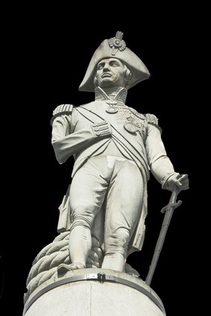
In comparison to a battle on land, think of the difference of being onboard a ship during warfare. The enemy could board a disabled ship and the combat could become head-on with no retreat. Chains could be shot into rigging to destroy a ship's sails. Death could come from above as the rigging fell. Grapeshot hitting the deck could cause splintering shrapnel so death could come from the back. The ship could sink—death from below.
After the battle, a man named Sam penned a letter to his father. Sam lost three fingers during the fighting but he didn't know how it happened. He just realized they were missing when he needed them. To experience an event like that and not be able to recall the exact moment, tells a large amount about the emotions of war.
Sam's letter is reprinted in the book Life Before the Mast, Edited by Jon E. Lewis.
Paintings of the battle and more details, including the fact that all three armies had a ship named Neptune, can be found at this site:
http://www.britishbattles.com/waterloo/battle-trafalgar.htm
If you don't know what broadsides meant to a sea captain during the Trafalgar battle, this video is a wonderful explanation:
http://www.bbc.co.uk/history/interactive/animations/trafalgar/index_embed.shtml


















 RSS Feed
RSS Feed

